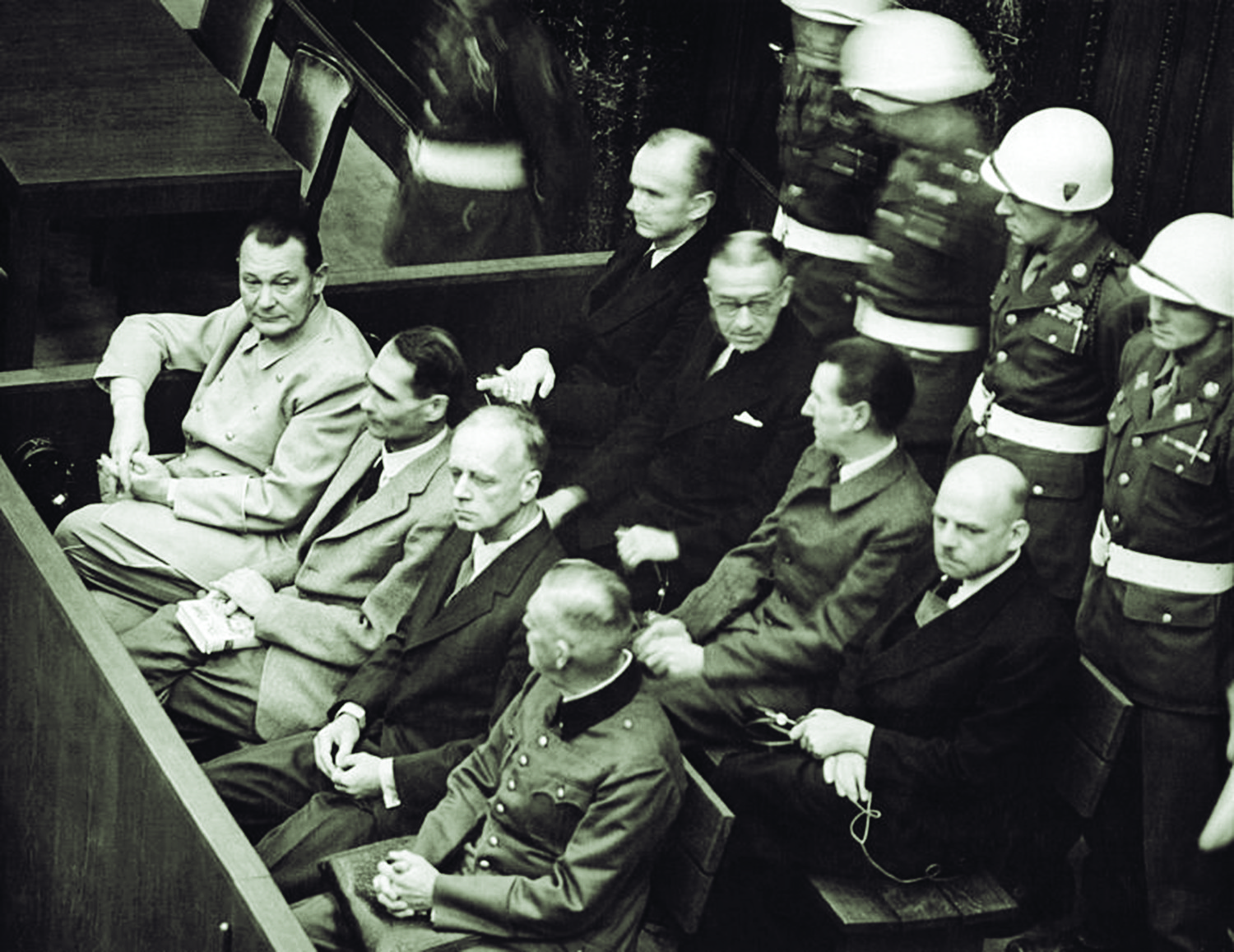The Holocaust gave rise to international criminal courts
This is the second part of a Dec. 7 article that examined the influence of the Holocaust on law.
In addition to human rights, international criminal law was heavily influenced by the Holocaust.
Prior to World War II, there was only one international crime for which individuals could be tried in a court of law: the age-old crime of piracy.
“Piracy was such a scourge in Greek and Roman times that anyone who arrested someone for the crime of piracy could punish that person on the theory that they were an enemy of the human race,” Bryant University Prof. Michael Bryant said at a recent Baxt Lecture. “Incidentally, the phrase ‘enemy of the human race’ was the same phrase used by an Israeli court to describe Adolf Eichmann at his trial in 1961.”
Prof. Bryant continued, “The Nuremberg trials in 1945, wherein 24 major war criminals were indicted after World War II by the allies to stand trial, is the first true international tribunal in world history. Nuremberg had such an impact on the world that even today we are still surrounded by these images.”
The categorization of the crimes and the makeup of the court represented an advance that the United Nations would later use to develop specific international jurisprudence for war crimes, crimes against humanity and wars of aggression, he said.
The Nuremberg indictments also mentioned genocide for the first time in international law.
The international military tribunal at Nuremberg met for about a year, and was followed by a sister institution that convened in Tokyo, the International Military Tribunal for the Far East. It tried to do with Japanese war criminals what Nuremberg had done with Nazi war criminals.
By the late 1940s, these ad hoc courts were disbanded; they came to an end once the defendants were either convicted or acquitted.
No comparable international court convened to try humanitarian crimes until 1993. That year, the United Nations Security Council created the International Criminal Tribunal for the former Yugoslavia (ICTY), which dealt with war crimes during the Balkans conflicts in the 1990s.
During its mandate, which lasted from 1993 to 2017, the ICTY changed the landscape of international humanitarian law. The court provided victims an opportunity to recount the horrors they had witnessed and experienced, and proved that those suspected of bearing the greatest responsibility for atrocities committed during armed conflicts could be called to account.
In 1994, the Security Council established the International Criminal Tribunal for Rwanda (ICTR), to judge people responsible for the Rwandan genocide and other serious violations of international law in Rwanda, or by Rwandan citizens in nearby states. The tribunal has jurisdiction over genocide and crimes against humanity. This is also an ad hoc court and will someday conclude its proceedings. The Security Council called on the tribunal to complete its work by 2012, but it continues to operate.
“Arguably the most important instrument of international law is the International Criminal Court, at The Hague, which was established by the Rome Treaty in 2007 as a permanent court for the prosecution of humanitarian crimes,” Prof. Bryant said. “International legal scholars had been urging its creation for decades. Looking at Article 6 of the Genocide Convention of 1948, you see a mention of an international penal tribunal, which the architects of the Genocide Convention thought should be available to try cases involving genocide.”
Prior to the 2000s, no permanent international courts existed for the purpose of prosecuting individuals for war crimes.
According to Prof. Bryant, “Experience has taught us that national courts will go after the ‘small fish,’ the lower-ranking people, typically avoiding the ‘bigger fish,’ the policymakers, the generals and heads of state that are responsible for human-rights violations. That is one of the reasons why Nuremberg is so important. It was the first time in world history that government leaders were held accountable and prosecuted for international crimes. People like Hermann Göring, who was tried, convicted and sentenced to death (although he committed suicide before his sentence could be carried out).
“What are the crimes that defendants were charged with at Nuremberg? War crimes, violations of the Geneva Conventions, genocide, crimes against peace, invading other countries without provocation, crimes against humanity, conspiracy and belonging to criminal organizations like the SS and Gestapo.”
Bryant concluded, “What we’ve seen since the end of World War II is the rise of a new paradigm, a paradigm that insists that the nation-state and its leaders really are accountable under international law for what they do to human beings. They do not enjoy immunity from punishment as they did before World War II and the Holocaust.”
In short, prosecuting war criminals in international courts is one enduring legacy of the Holocaust. As Prof. Bryant expressed it: “Today, human rights are the coin of the realm.”
LEV POPLOW writes on behalf of the Sandra Bornstein Holocaust Education Center, in Providence. He can be reached at levpoplow@gmail.com.








